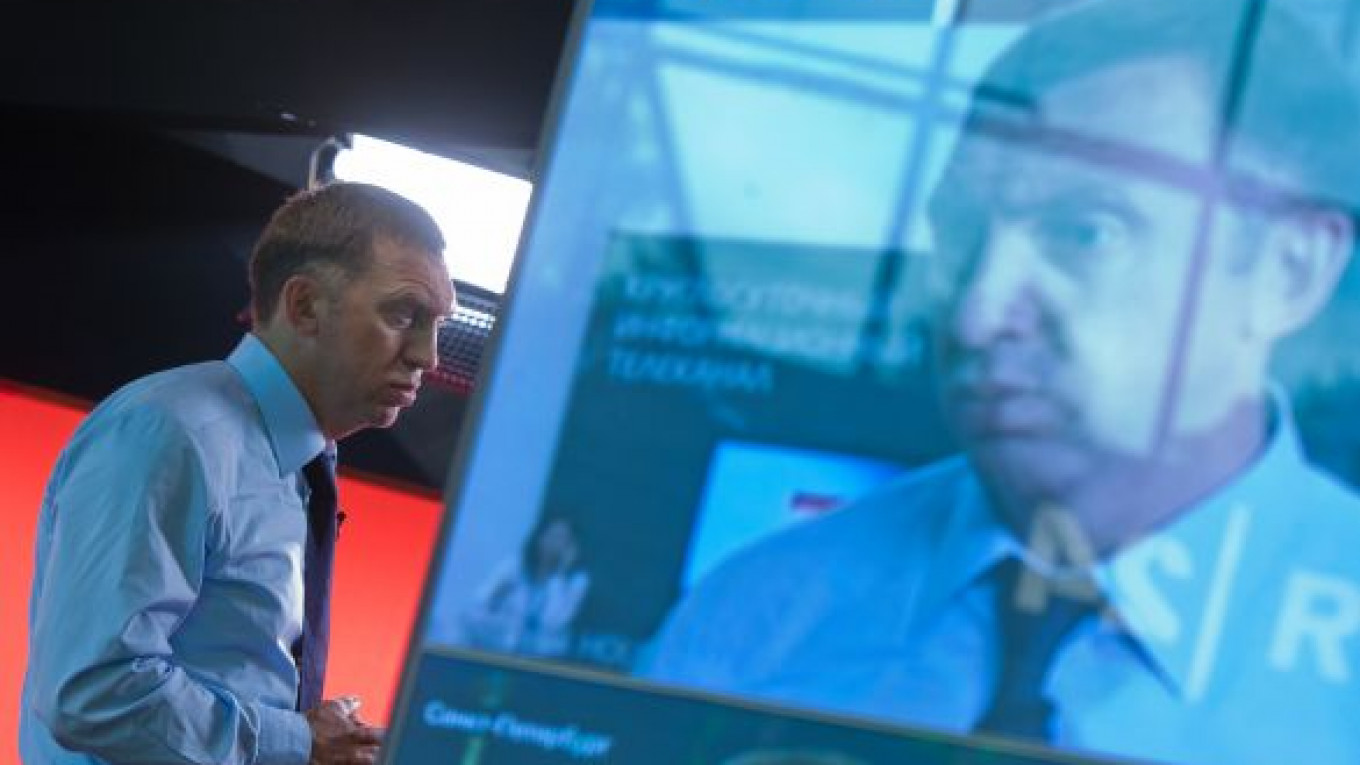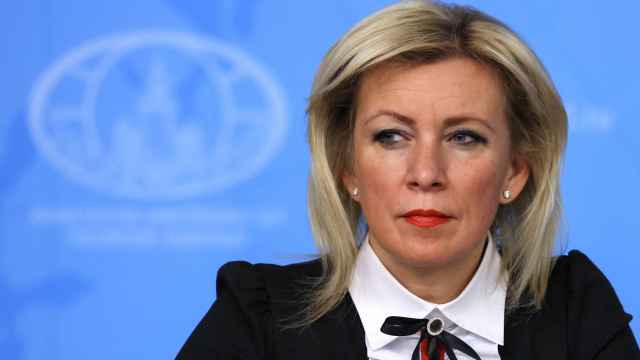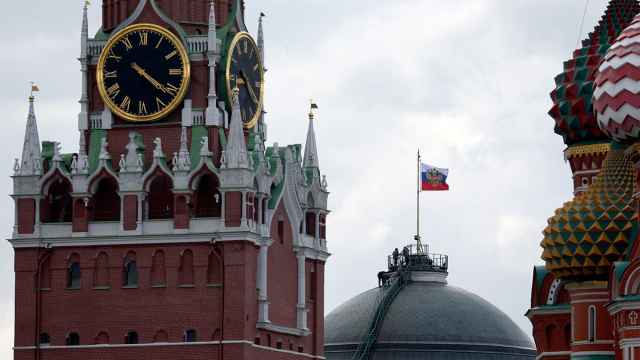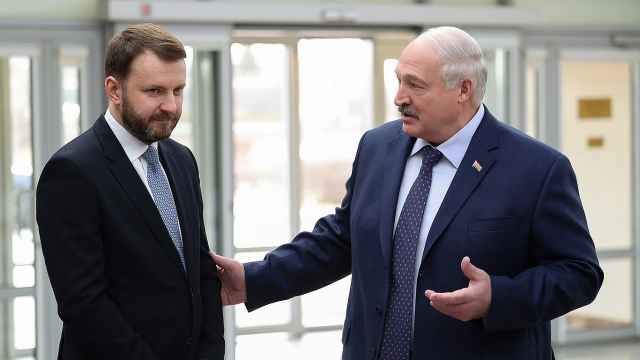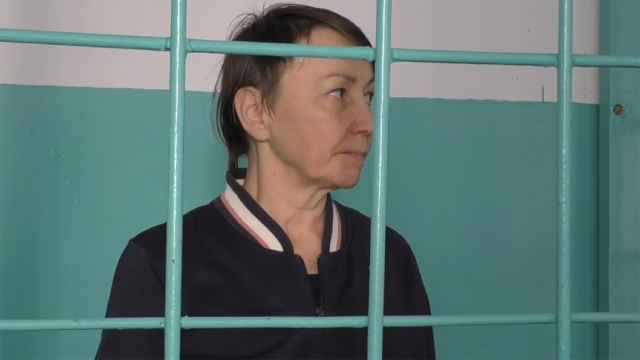Oleg Deripaska does not want to lose his stake in Austrian construction firm Strabag, so he is willing to trade in his Russian assets, such as Transstroi and Glavmosstroi.
Deripaska's Rasperia Trading bought a 30 percent stake in Strabag for 1.2 billion euros ($1.59 billion) in 2007. As a result of an initial public offering, that turned into 25 percent minus one share.
At the time, Deripaska was actively involved in infrastructure construction, in which the Austrian firm is particularly strong, and filled out his asset portfolio with Russian contractor Transstroi.
But the crisis ruined those plans: Most of his assets, including his stake in Strabag, were put up as collateral for loans and came under margin calls. Deripaska was bailed out by Strabag's other shareholders — Raiffeisen/Uniqa Group and the family of Hans Peter Haselsteiner, the head of the holding — who lent him 500 million euros so as to retain him as a partner and hold onto its prospects in the Russian market.
Although the deadline for repayment of the loan was extended four times, Rasperia Trading was not able to repay the debt, and at the end of April 2009, Strabag shareholders took possession of the stake. Deripaska held onto a single share, two seats in the supervisory council and an option to buy back the original stake.
"We intend to exercise the option in accordance with the agreement with our partners," a spokesman for Deripaska's Basic Element said Monday.
According to Strabag's financial reports, the option is valued at 19.25 euros ($25.46) per share, or 548.6 million euros for the whole stake. According to Monday's share prices on the Viennese stock exchange, the same size stake was valued at 511 million euros.
The option expires on Oct. 15, and Rasperia Trading is already holding talks on exchanging Deripaska's Russian assets for the Strabag stake, said a source close to the management of Deripaska's Glavstroi. A source close to Strabag's management confirmed the information. Transstroi and Glavmosstroi may also be included among the assets offered to Strabag shareholders, both sources said.
The talks are not yet completed and no concrete results have yet been reached, both sources said. Strabag shareholders were not available for comment Monday. Glavstroi spokesman Vitaly Korolev declined to comment, while executives at Transstroi said they were not aware of the talks.
Deripaska owns 100 percent of Transstroi and Glavstroi, which owns Glavmosstroi. Among Transstroi's biggest projects is the new Zenit football stadium, the reconstruction of Sheremetyevo Airport and a loading port in Sochi's Imperetinskaya Valley.
Strabag is one of a few foreign companies that has already worked in Russia for a long time. Although one of its main business directions is road construction, the company is better known here for its successful commercial real estate projects.
The quality of Strabag's construction is much higher than that of many Russian companies, said Tatyana Palchikova, deputy CEO of Trest-1991.
Nevertheless, Strabag needs to strengthen its position in Russia. During the crisis, its orders dropped 25 percent, from 1.4 billion euros to 1 billion euros, while its total output fell more than 40 percent from 476 million euros in 2008 to 282 million euros last year.
"Theoretically, if Strabag becomes a shareholder of the Russian companies, it could influence decisions and bring its size to bear in the development of Transstroi and Glavmosstroi projects," said Artyom Tsogoyev, managing partner of the Moscow Central Real Estate Exchange.
Mikhail Urinson, managing director of Alur, evaluated the deal ambivalently. This is an exchange of real assets for a noncontrolling stake in the company, he said, and this should interest Strabag most — it needs a lobbyist like Deripaska in Russia.
Last year was unsuccessful for the Austrian company: Renova-StroiGroup dismissed Strabag as general contractor for the Akademichesky project, and a multi-floored parking garage on Kozhevnicheskaya Ulitsa built by Strabag collapsed.
A Message from The Moscow Times:
Dear readers,
We are facing unprecedented challenges. Russia's Prosecutor General's Office has designated The Moscow Times as an "undesirable" organization, criminalizing our work and putting our staff at risk of prosecution. This follows our earlier unjust labeling as a "foreign agent."
These actions are direct attempts to silence independent journalism in Russia. The authorities claim our work "discredits the decisions of the Russian leadership." We see things differently: we strive to provide accurate, unbiased reporting on Russia.
We, the journalists of The Moscow Times, refuse to be silenced. But to continue our work, we need your help.
Your support, no matter how small, makes a world of difference. If you can, please support us monthly starting from just $2. It's quick to set up, and every contribution makes a significant impact.
By supporting The Moscow Times, you're defending open, independent journalism in the face of repression. Thank you for standing with us.
Remind me later.


